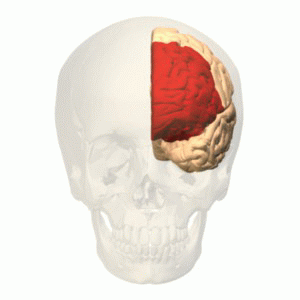Depersonalization-derealization disorder
(Redirected from Depersonalisation disorder)
Editor-In-Chief: Prab R Tumpati, MD
Obesity, Sleep & Internal medicine
Founder, WikiMD Wellnesspedia &
W8MD medical weight loss NYC and sleep center NYC
| Depersonalization-derealization disorder | |
|---|---|

| |
| Synonyms | N/A |
| Pronounce | N/A |
| Specialty | N/A |
| Symptoms | Persistent or recurrent feelings of detachment from one's body or mental processes, feeling like an outside observer of oneself |
| Complications | N/A |
| Onset | Typically in adolescence or early adulthood |
| Duration | Can be episodic or chronic |
| Types | N/A |
| Causes | Stress, anxiety, depression, trauma, substance use |
| Risks | Childhood trauma, substance abuse, mental health disorders |
| Diagnosis | Based on clinical assessment and criteria from the DSM-5 |
| Differential diagnosis | Panic disorder, schizophrenia, dissociative identity disorder, anxiety disorders |
| Prevention | N/A |
| Treatment | Psychotherapy, cognitive behavioral therapy, medication |
| Medication | N/A |
| Prognosis | Varies; some may experience improvement with treatment |
| Frequency | Estimated 1-2% of the general population |
| Deaths | N/A |
Depersonalization-Derealization Disorder (DDD) is a dissociative disorder characterized by persistent or recurrent feelings of depersonalization, derealization, or both. Depersonalization is an experience where individuals feel detached from their own thoughts, feelings, body, or actions. They may feel like an outside observer of their own life. Derealization involves a sense of unreality or detachment from the environment, where the world may seem like a dream or visually distorted.
Symptoms[edit | edit source]
The primary symptom of DDD is the ongoing or recurrent experience of depersonalization or derealization or both. Individuals may describe feeling "robotic," as if they are not in control of their speech or movements. The world may seem unreal, and people may seem lifeless or visually distorted. Despite the disturbing nature of these symptoms, reality testing remains intact; that is, the person realizes that these experiences are not reflective of reality. Other symptoms may include emotional numbness, a sense of alienation from oneself or others, and difficulty concentrating.
Causes[edit | edit source]
The exact cause of DDD is not well understood, but it is believed to result from a combination of genetic, environmental, and psychological factors. Stressful or traumatic events, such as abuse, accidents, or severe illness, may trigger the disorder in susceptible individuals. There is also evidence to suggest that an imbalance in certain brain chemicals may be involved.
Diagnosis[edit | edit source]
Diagnosis of DDD involves a thorough clinical interview and, often, a physical examination to rule out other conditions that might cause similar symptoms, such as neurological disorders or substance abuse. The Diagnostic and Statistical Manual of Mental Disorders (DSM-5) criteria for DDD include experiencing depersonalization or derealization symptoms that cause significant distress or impairment in social, occupational, or other important areas of functioning.
Treatment[edit | edit source]
Treatment for DDD may include psychotherapy, medication, or a combination of both. Cognitive-behavioral therapy (CBT) is commonly used to help individuals challenge and change negative thought patterns and behaviors related to their symptoms. Medications, such as antidepressants or anti-anxiety drugs, may be prescribed to help manage symptoms, although there is no specific medication approved for the treatment of DDD.
Prognosis[edit | edit source]
The prognosis for individuals with DDD varies. Some people may experience symptoms for a few months and then recover completely, while others may have symptoms that persist for years. Early intervention and treatment can improve the prognosis.
See also[edit | edit source]
- Dissociative identity disorder
- Anxiety disorder
- Post-traumatic stress disorder
- Cognitive-behavioral therapy
References[edit | edit source]
Search WikiMD
Ad.Tired of being Overweight? Try W8MD's physician weight loss program.
Semaglutide (Ozempic / Wegovy and Tirzepatide (Mounjaro / Zepbound) available.
Advertise on WikiMD
|
WikiMD's Wellness Encyclopedia |
| Let Food Be Thy Medicine Medicine Thy Food - Hippocrates |
Translate this page: - East Asian
中文,
日本,
한국어,
South Asian
हिन्दी,
தமிழ்,
తెలుగు,
Urdu,
ಕನ್ನಡ,
Southeast Asian
Indonesian,
Vietnamese,
Thai,
မြန်မာဘာသာ,
বাংলা
European
español,
Deutsch,
français,
Greek,
português do Brasil,
polski,
română,
русский,
Nederlands,
norsk,
svenska,
suomi,
Italian
Middle Eastern & African
عربى,
Turkish,
Persian,
Hebrew,
Afrikaans,
isiZulu,
Kiswahili,
Other
Bulgarian,
Hungarian,
Czech,
Swedish,
മലയാളം,
मराठी,
ਪੰਜਾਬੀ,
ગુજરાતી,
Portuguese,
Ukrainian
Medical Disclaimer: WikiMD is not a substitute for professional medical advice. The information on WikiMD is provided as an information resource only, may be incorrect, outdated or misleading, and is not to be used or relied on for any diagnostic or treatment purposes. Please consult your health care provider before making any healthcare decisions or for guidance about a specific medical condition. WikiMD expressly disclaims responsibility, and shall have no liability, for any damages, loss, injury, or liability whatsoever suffered as a result of your reliance on the information contained in this site. By visiting this site you agree to the foregoing terms and conditions, which may from time to time be changed or supplemented by WikiMD. If you do not agree to the foregoing terms and conditions, you should not enter or use this site. See full disclaimer.
Credits:Most images are courtesy of Wikimedia commons, and templates, categories Wikipedia, licensed under CC BY SA or similar.
Contributors: Prab R. Tumpati, MD

